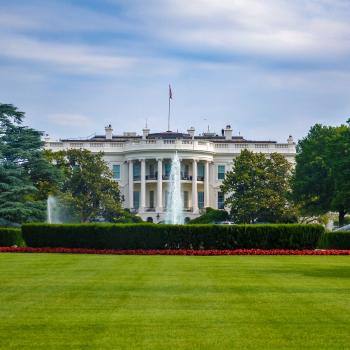
“Today, Monday October 26, 2020, will go down as one of the darkest days in the 231-year history of the United States Senate.” This was Senator Chuck Schumer (D-NY) on the day cited in the statement.
To what was he referring? None other than the Senate confirmation of now Justice Amy Coney Barrett to the Supreme Court. Why was this the darkest day in Senate? Was the integrity of the vote in some way compromised? Was some procedural rule violated? Foul play? None that Schumer mentioned.
Rather, Schumer’s stated rationale for what was surely meant to be a provocative, galvanizing statement for Democrats, was that a Republican president—who still holds office and all the powers intricate thereto until January, last I checked, and as confirmed by the Notorious RGB herself—and a Republican controlled senate nominated and confirmed a justice of their liking to the highest court in the land. How scandalous!
The New York Times, to add some sauce to statements made by Schumer and his comrades, made sure to emphasize that Republicans have appointed 16 of the last 20 justices to the Supreme Court. As if this figure itself delegitimized the most recent appointment. As if there is some dormant clause in the constitution that mandates parity of judicial seats. (If Democrats were smart they’d say, “Keep ’em coming!” considering that conservative justices have so often defected in the years since and including Reagan.)
The narrative of Trump’s alleged perpetual and innumerable violations of the constitution has sustained liberal outrage for the past four years. Schumer’s lament was just the latest iteration of the same.
Citations of Trump’s violations of constitutional norms abound, but most are relatively toothless.
For instance, oft cited is the fact that Trump’s decision to impose a 25 percent tariff on Chinese goods may have been effectively amounted to a national federal sales tax, as some suggested, but this does not mean that the president actually and unilaterally levied new taxes. In other words, it is not tantamount to a violation of the separation of powers. It has, nevertheless, been framed that way.
At various points, the rhetoric coming out of the White House has, sure enough, proven, err, unusual. Back in the spring, during the impeachment process, there were memos and rumors of memos insinuating that the process was rigged and that Trump administration staffers would not cooperate. But none of that ever came to fruition. The impeachment process ran its course, no one cared, everyone forgot about it, nothing big came of it. What the Trump camp rhetoric good? No. Was it particularly consequential? No. Did it spark a constitutional crisis? No.
Another thing tossed around is the allegation that Attorney General Bill Barr is improperly acting as Trump’s personal attorney, and all whilst spouting off a “unitary executive theory,” which must always be surrounded by scare quotes. But again, this is another instance of legitimate competing theories of executive power and roles being flattened by the media for the sake of the narrative. As Josh Hammer has pointed out, the history of the office of the attorney general evidences that personal counselor to the present is, in fact, a central part of the job. And as Barr himself has rightly said, the unitary executive theory isn’t a theory, its a plain reading of Article II.
Then there’s the election.
The Democrats were able to occupy themselves with bemoaning Trump’s latest court appointment for a couple of weeks, but in generally, the constitutional crisis narrative has hinged, for the past several months, on Trump’s off-hand comments regarding the transition of power (in the event of his defeat tomorrow). Many of his comments, in true Trump fashion, lacked tact, to say the least. I would even categorize them as inappropriate and irresponsible.
But, again, they have thus far been inconsequential and certainly do not represent a constitutional crisis. If our constitutional order were so fragile as to be shaken by the running, unfiltered stream of consciousness that is a Trump rally speech, we would not have lasted this long. But the fear conjured up by Democrats about a hypothetical conflict over election results—we’ve lived through that too by the way—has provided the fuel for the crisis narrative for months now. That doesn’t make it any more true or likely. The other one people freaked out over was Trump’s suggestion at some point that the election would be delayed. That never materialized. But it sure sent some people into orbit. One begins to wonder if the president is strategic enough to do this kind of thing on purpose just to get a rise out of the media and direct the conversation back to himself on a regular basis.
***
The reality is that our constitutional order, our separation of powers and procedural mechanisms, have been firing on all cylinders for the past four years. If Trump really is Hitler, and we really are living through a reincarnation of the Third Reich, as nearly every mainstream think piece insists ad nauseum, then our republican government has proven remarkably resilient. It has singlehandedly withstood a fascist dictator and frustrated his scheming at every turn.
When Trump attempted to, again, effectively, limit immigration on a religious basis, the courts blocked the policy. The same thing happened when Trump proposed withholding money from so-called sanctuary jurisdictions, and again, when Trump attempted to redirect defense budget funds from building fighter jets to building the border wall. The recent upholding of DACA by the Supreme Court taught us that not all executive orders are created equal. In some cases, it seems, the endurance of an executive order depends on the relative messianic aura of the undersigned, a quality commandingly wielded by Trump’s predecessor but not yet distributed by the king-making media to him. And he, obviously, should not hold his breath.
In response to all of these defeats, did Trump then summarily dismantle the courts through an executive order, and have his brown shirts fling judges down courthouse stairs? No.
Despite all the “unnamed White House staffer” accounts of Trump’s bullying members of his cabinet and demanding undying loyalty from his appointees, nothing so fantastical has happened. The constitutional order remains intact. As Niall Ferguson has mockingly said, if you think that acquiescence to the ruling of federal courts was Hitler’s style then you’re smoking something that federal courts have not yet declared legal.
Upon taking power, the Nazi regime swiftly dissolved the legislature and abolished the constitution in toto. By contrast, the Trump administration has not advocated any such structural changes to our constitutional order, nor the alteration of the constitution itself, much less its abolishment. The legislature remains intact, just as immobile and backbiting as ever.
So, there have been no structural changes; the House and Senate have not been raised to the ground. Do Trump’s alleged violations of the law generally yield a constitutional crisis?
As Samuel Levinson and Jack Balkin have shown, courts often find that the executive branch has violated the law and strike down their actions accordingly. What presidents never do is argue for the revocation of the constitutional article or federal statute under which they have been chastised. Rather, they make sometimes awkward, sometimes clever interpretive arguments supporting their favored actions and policies within the confines of the constitution and law as it stands. The Trump administration has been no exception. And the finding by a court that the executive, in any administration, has violated the law does not constitute a constitutional crisis.
The ongoing question—which the Fourth Circuit decided not to throw out per Trump’s request— regarding whether Trump has violated the Emoluments Clause by owning a hotel in Washington D.C. is still just that, an open question. Usually, wealthy presidents place their assets in a blind trust during their tenure. The, perhaps naïve, assumption is that they will then be unaware if “something of value” comes their way. Trump, on the other hand, has temporarily entrusted his business and assets to his children.
Because Article I, Section 9 prohibits the president from receiving foreign gifts (i.e. bribes) (see generally, Federalist # 22 and Madison Debates) and because Article II, Section I is concerned with the president receiving any emolument (i.e. profit, benefit, gift) from the U.S. government besides the set salary, the issue is whether Trump Hotel, by hosting foreign diplomats and leasing a building from the government, places its owner in violation of said clauses. Riveting stuff.
Generally, since the Emoluments Clause is, by design, sweeping, it has been thought that Congress has discretion to allow or disallow certain benefits, profits, etc. to the president. As Zephyr Teachout of Fordham Law has explained, “This puts a constitutional burden not only on him, but on Congress, to create a procedure to review and consent to foreign-state related transactions that benefit him.” ( SCOTUS recently declined to review an emoluments case brought by Congressional Democrats, affirming the lower court’s finding of lack of standing.) (For more on the Emoluments Clause and the ongoing Trump litigation [two cases], see here.)
But even if it is found that Trump has violated this undertheorized, under-litigated clause, that the constitution itself is in crisis would not be a valid conclusion to draw therefrom. If the constitution is working—something implied by finding the executive guilty of violating its provisions—then it is, by definition, not in crisis.
Likewise, when a federal court blocked the Trump administration’s attempt to redirect Pentagon funds to border wall construction, the constitution was not in crisis, and the executive branch had not fallen into corruption.
***
The narrative of the perpetual constitutional crisis predicated on violations of the law by the executive—violations that have been stopped via proper judicial procedure and constitutional application—are misnomers. The constitutional crisis narrative is a specter, a mechanism for political change, and political change that is not responsive to circumstances, but rather animated by ideological commitments at the outset.
The Trump administration has not produced a constitutional crisis, and it is not the true catalyst for change to the constitutional order. Rather it has presented a convenient, long searched for, occasion for the left to muster the political will to enact its policy preferences, many of which, we have found, apply directly to the constitutional order they claim is in irreparable disarray.
Most of the commentary to the contrary from the left during the Trump era has expressed a feeling more than cold analysis. It has been a response to discomfort, to objectively objectionable rhetoric, to a sense of despair expected out of the party that has recently, painfully, and unexpectedly, lost an election.
To be sure, Trump is not what we are all used to, to put it mildly: divisive, highly partisan speech, name-calling, and all the rest. All of this may threaten norms of decorum and civility, but they do not encroach upon the constitutional order. In point of fact, the constitutional order, its procedures, precedent, and norms, have never been credibly threatened over the past four years. Indeed, despite their weathered façade, the foundations remain firm. There has not been a moment when real, material alteration seemed likely
That is, until now.
Only one party materially threatens the constitutional order.
***
Let us, for a moment, arguendo, assume that the howls from the left are completely valid. In this counterfactual, the Trump administration has run roughshod over every constitutional norm and procedural mechanism known to the founders, and has succeeded in his aims, acquiring all his real estate mogul heart desires unimpeded. How do we recover? What is the remedy proposed by “the resistance”?
Curiously, the solution proffered by the Left to four years’ worth of erosion to the constitutional order is not the rebuilding of the same. It is not the shoring up of its foundations. The path on offer is dismantlement and substitution, a radical restructuring. Trump has so viciously violated the constitution that, apparently, the only viable means to remedy its allegedly tattered condition is to… start from scratch? Apparently, at least to some extent, yes.
***
After the confirmation of ACB, the New York Times published a series of articles entitled “How to Fix the Supreme Court“—the implication, obviously, being that it is irreparably broken— all of which were written by law professors from top schools.
Kent Greenfield of Boston College Law School advocates for an entirely new constitutional court: “The Supreme Court has become too partisan and unbalanced to trust it with deciding the most important issues of our day.” Professor Greenfield assures us, from his perch in Newton, Massachusetts that “most American” know he speaks the truth. Greenfield’s proposal is that the United State follow the example of Germany and France and “create a specialized court to decide constitutional questions.” The president would unilaterally select the judges, from a list curated by a “bipartisan commission,” from other federal courts to fill the new roles. “Staggered terms would guarantee each president several appointments.” Henceforth, the Supreme Court would only hear cases pertaining to the interpretation of federal statutes. The rest would go to the new court comprised of an even number of judges, “ensuring it would never rule with a bare majority.” In Greenfield’s proposal, the Supreme Court would still serve as an appellate court on constitutional questions, but only if a supermajority of justice voted to receive a case from the newly formed constitutional court.
In the same series, Steven G. Calabresi of Northwestern advocates term limits (18 years)—which he humorously thinks will somehow make the court less political—and Melody Wang, a student at Yale Law, wants Congress to strip the Court of its discretionary docket power. Two Californians, Aaron Tang (Cal-Davis) and Larry Kramer (Stanford) toy with court packing in the series—the latter justifying the move as a “political response to a political act” (i.e. Barrett’s confirmation), and Leah Litman (Michigan) advises expanding the lower courts. (Litman’s strategy is the smartest. She understands where true influence resides.) Only Randy Barnett (Georgetown) dissents (“Keep the Courts the Same”).
These are all wild proposals, but don’t for a moment think they’re too wild to gain traction. (Just yesterday, Kamala Harris posted a campaign ad on Twitter that advocates for nothing less than absolute equality of outcome–controlling for historic injustices/disadvantages. It is the new version of “equity” promulgated by critical social theories. The money quote is: “Equitable treatment means we all end up at the same place.”)
Court packing is, of course, already on the table. Biden has played coy about the whole thing but, at this point, it seems to be a live option for a Biden-Harris administration. Uncle Joe most recently said he would, upon taking office, convene a “commission” to “study” the situation.
To be clear, resorting to court packing has, since FDR last proposed it, been considered by everyone (including Biden himself) to be a gross violation of constitutional norms, one that would threaten the integrity and independence of the court. (And to invoke Josh Hammer again, the outcome of a Biden/Harris-packed court would be “judicial carnage.”) That the idea has been rejected outright as patently absurd is not a good sign.
But court packing isn’t the end of the likely material changes to the constitutional order coming our way. The Electoral College has long been a target of certain Democrats, most notably Elizabeth Warren (who, if she has her way, might end up being Secretary of the Treasury). According to a poll conducted in September, 89% of Democrats want to abolish the Electoral College and replace it with a purely popular vote. The political will is there. Since last year, its become something of a progressive litmus test.
This is a disheartening and consequential development. As the late Michael Uhlmann wrote, the Electoral College is not some stand alone appendage to our democracy, but rather a indispensable party that contributes to the integrity of the whole constitutional order:
“If elections were simply a matter of counting heads and stopping when you got to 50% plus one, we could dispense with all the checks and balances of the Constitution, including federalism, bicameralism, the separation of powers, and, yes, the Electoral College. The point of these time-honored devices, which are all part of an integral whole, is not to circumvent popular sentiment, but to shape and channel it in ways that support the principal end for which popular government is constituted: to secure the equal rights of all.”
The electoral college recognizes that population alone is not the only factor deserving of influence. That being said, the electoral college is based entirely on the make-up of the House of Representatives, which is determined by population. Every state has a baseline of three votes, any added thereafter according with the number of seats held by a given state in the House. What is undemocratic about that?
The Electoral College forces a president to consider the whole nation, in all the peculiarities of its diverse locales, not merely the nation as a whole. That is, a presidential candidate has to think about, and weigh, the differences between Ohio and California and Georgia, when campaigning and charting the course of his administration. This is more difficult than simply appealing to the un-diverse, unparticular, faceless mass. The presidential candidate must consider how to hold the federation together. If the significance of states was removed from the electoral calculous, then campaigning would get a whole lot easier, but it would also entail that the people of less populated states would effectively become second class citizens, that is, irrelevant. Without the Electoral College, national politics would shed all local consideration. Surely this would not only diminish participation but also marginalize certain, underrepresented groups.
Mere majoritarianism ostracizes those who do not scream the loudest. The tyranny of the majority is a phenomenon understood by our Framers as well as astute observers like Tocqueville. And demagoguery is the natural concomitant of majority tyranny. The consultation of the minority has a tempering effect on the electoral process. The Electoral College, then, may most importantly function as a moderating force. But this, of course, infuriates the immoderate.
As Hadley Arkes (and the Federalist dissenters before him) feared, our obsession with the Bill of Rights has rendered us incapable of 1) arguing for and from principles antecedent to that explicit list, and 2) understanding the foundational principles implied in, and reflected by, the composition of our republican system, such that now we flippantly toss aside key, indispensable parts like the College. If we think politics is intemperate (and prone to demagoguery and the command of special interests) now, wait until we become a mere democracy.
But there are others on the Left who think the eradication of the Electoral College necessary but insufficient.
Quinta Jurcic and Susan Hennessey, writing for the Atlantic, tied the Electoral College issue to that of court packing. “The constitutional system has always been full of contradictions, after all, and, idiosyncratic as it is, it has been more or less functional as the basis for a common agreement on how things should work,” they explained.
“Today, though, a president who resoundingly lost the popular vote has filled two seats on the Supreme Court. He has since been impeached. If Barrett is confirmed and Trump goes on to lose the election—or if Trump loses the election and Barrett is confirmed after the vote but before he leaves office—the Senate will push that common agreement, already strained, beyond its breaking point.”
In (qualified) retort at the New Republic, Osita Nwanevu rightly questioned this assessment.
“[i]t has always been the case that a candidate can win the presidency without winning the popular vote; nothing in the Constitution has ever proscribed a president who has—or a president who has been impeached and duly acquitted—from appointing justices. Having won a clear Electoral College victory, Trump has taken the opportunities he has been given to nominate three. Senate Republicans have been approving them through the process the Constitution set out.”
Quite right. Contra Schumer and everyone else, nothing unconstitutional occurred when Barrett was confirmed (nor when Trump was elected without the popular vote). But then Nwanevu puts his finger on the real problem:
“Things haven’t gone wrong because a system that was humming along fine until recently has been damaged in some fundamental way. The system is humming along essentially as it always has with increasingly dire results. The crisis is not that the American constitutional system is broken but that the American constitutional system is working—perhaps not as the Framers intended but, as a legal and administrative matter, mostly as it was designed to.”
After surveying structural changes and efforts to democratize the court (i.e. court packing), Nwanevu remarks,
“Yet the institutionalist case for moderate structural reforms seems to proceed from the premise that when all is said and done, Republicans will be structurally entitled to a co-equal role in governing and shaping public policy in this country. Why? For what reason?… A wave of violent reaction is absolutely inevitable no matter what decisions are made under a Biden administration and, in fact, whether or not Biden wins the election.”
The point is that fair play, fealty to neutral proceduralism, need not be a priority for Democrat-led reforms. (Paging David French!) Other, more radically certain mechanisms are needed to restrain the Right, and…
“The Constitution will not do it—the election of Donald Trump should have shattered the notion that it can be relied upon as a stabilizing force; it cannot be made into one by democratic norms it was not designed to uphold and that, in many cases, it explicitly contradicts… It has become commonplace to argue that we’re on the cusp or in the middle of a constitutional crisis fed by a collapsing faith in the legitimacy of American institutions. This is wrong. The legitimacy of the Constitution is our crisis.”
The constitution is the problem, and Donald Trump’s election (not merely his term in office, mind you) are proof positive. “Even the more radical court-packing schemes, really, are premised on the need to preserve judicial review at least as a formal exercise. There are other options.” Jurisdiction-stripping (i.e. judicial supremacy-stripping) wouldn’t even suffice, per Nwanevu. Working within the (even highly altered) system still does not adequately ensure Liberal policy victories. (Even the calls for new constitutional conventions are surrounded by fear that the “right-wingers could win.“) No. What is needed is something grander. Whilst Democrats may be forced to work within the system for the near future they should not let this stifle their ambitions:
“[T]he American left should work toward abolishing the Constitution someday—either for a new document or a new democratic order without a written constitution.
The basic argument is that because the Framers discarded the Articles of Confederation as unworkable, we should be free to do the same whenever we please. (It should be remembered that the Articles were in place for all of eight years. Mere details.) The real genius of the Framers is to be found not in a “special capacity for principled compromise and not extraordinary foresight or a collective wisdom sure to endure through the ages, but rather the force of their will.” The will-to-power, then, should be our chief political value. Do we have any less right to be audacious Nwanevu asks. Indeed, aren’t we smarter, more pure in our moral convictions (“It is beyond debate that we are their moral superiors”), than those provincials stumbling round in the dark of the late 18th century? The closing paragraph:
“On the day we as a people finally rise beyond narrow faction and above the power of capital to make ourselves a new republic, it is certain that we will do better—securing for truly all Americans not only a framework of now familiar political freedoms but a framework of economic rights rooted in the notion that democratic values and a revulsion for arbitrary, unchallenged authority should shape more than just our system of government. Until then, a half-measure: If it is given the opportunity, the Democratic Party—without hesitation, guilt, or apology—should pack the Supreme Court to its advantage.”
***
This is the illiberalism of the Left. (I wonder if Nwanevu will get a slot on Biden’s court packing commission?) This is radical stuff and it will only gain steam (perhaps, regardless of who wins tomorrow). What should concern us is that many of these proposals for structural change no longer feel compelled to work within the inherited system and tradition of governance, but are rather free to proffer complete overhaul.
For better or worse only one party, only one political faction, is a threat–and that word can be taken as totally neutral without compromising the truth of this statement–to the constitutional order as we know it. And they’re not even trying to hide it.
***
A recent article at Mere Orthodoxy held that “politics is more than abortion v. character,” that is, the abortion policy of the Left and the poor character of Trump. I agree, but for different reasons. Paul Miller, the author of the piece, makes the case that the real battle is between nationalism and progressivism. This is a rather strange dichotomy, in my opinion– and the piece caricatures nationalism, making it synonymous with the kind of pseudo-ethnocentric nationalism that Trump is often accused of instigating– but no matter. In the last paragraph of the same article, Miller says that the “American experiment is a miracle of political order.” With this I agree also, and that’s the point. Politics, in our present moment, is about preserving the time-tested conditions for this experiment. Its about maintaining the constitutional order that has served us well (even carrying us through, like a great ark, the storm of the supposed fascist tyranny of Trump). And only one party has come to be defined by its impatience with and antipathy for said order.
Image: Howard Chandler Christy’s Scene at the Signing of the Constitution of the United States (Wikimedia Commons)












